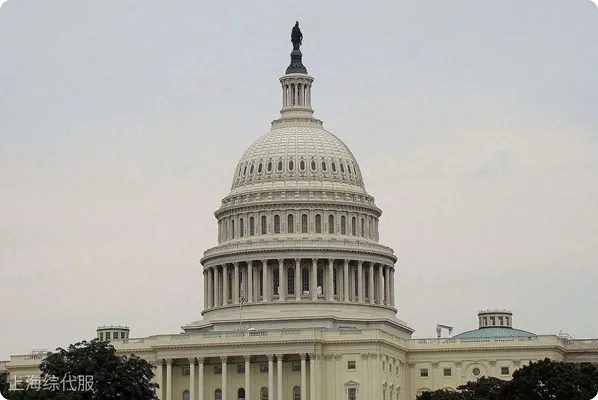On January 14, 2025, President-elect Trump announced on Truth Social his plan to create a Foreign Tax Bureau. He aims to collect tariffs and foreign income, charging those who profit from US trade. January 20, 2025, could mark the bureau's official launch.
This news instantly attracted great attention from all walks of life around the world. After all, as an important force in the global economy, any major adjustment of the US economic policy may have a profound impact on the world economic structure.

Related Background
The current tariffs in the United States are collected by the Customs and Border Protection Agency, and the money is deposited into the Treasury's general fund. Tariffs contribute less than 2% to federal revenue. As early as during the campaign, Trump proposed to impose tariffs of at least 10%-20% on all imported goods. In November 2024, Trump said that he would impose a 25% tariff on all goods imported from Canada and Mexico on "the first day of his presidency" unless illegal immigration and fentanyl trafficking stopped.
In addition, according to people familiar with the matter, Trump's economic team is discussing slowly raising tariffs month by month to increase bargaining chips in a step-by-step manner while trying to avoid a surge in inflation. One of the ideas is to develop a progressive tariff schedule with monthly increases of about 2% to 5%. However, the proposal is still in the early stages and has not yet been submitted to Trump himself.
How it affects the United States itself
Economic level
- Rising prices: Mainstream economists warn that Trump's threat to impose tariffs could raise prices for American consumers and heighten public anxiety about inflation.
- Changes or reductions in trade flows: The imposition of tariffs may cause U.S. trading partners to reduce exports to the U.S. or seek other trading partners, thereby changing or reducing U.S. trade flows. The cost of imported raw materials and parts for U.S. companies may increase, affecting their production and operations. Some industries that rely on imported goods may face supply shortages or rising costs.
- Changes in fiscal revenue:Trump hopes to increase revenue by imposing tariffs, but economists believe that the increased revenue from tariffs may not be able to offset the losses from tax cuts and the impact of retaliatory measures from other countries. In the long run, tariffs are expected to lead to a decline in US gross domestic product (GDP).
Political aspects
The plan has been severely criticized by Ron Wyden, a Democrat and chairman of the U.S. Senate Finance Committee, and may trigger disagreements and games among domestic political forces in the U.S. In addition, the establishment of a new department may increase the level of government bureaucracy, which runs counter to the purpose of the "Government Efficiency Department" proposed by the Trump administration, and may also cause coordination and management problems within the government.

Heightened international trade tensions
Trade friction intensifies
Trump's move highlights his determination to impose tariffs on foreign imports, which may further escalate trade frictions between the United States and other countries. The United States' trading partners may take retaliatory measures, impose tariffs on U.S. exports or take other trade restrictive measures, aggravating global trade tensions and undermining the existing international trade order and rules.
Global industrial chain is blocked
This move may disrupt the normal operation of the global industrial chain and supply chain. Some multinational companies may adjust their production layout and supply chain, reduce investment and production in the United States, or transfer production links to other countries to reduce tariff costs, which will have a negative impact on the stability and efficiency of the global industrial chain.

In the future, whether the establishment of the "Foreign Taxation Office" can be smoothly implemented as Trump wishes is full of uncertainty. It faces multiple challenges such as domestic political differences, opposition from the international community, and constraints of economic laws. If the plan is finally implemented, the trade relations between the United States and other countries will face severe tests, and the global economic landscape may also undergo profound changes.


 Follow customer service WeChat
Follow customer service WeChat